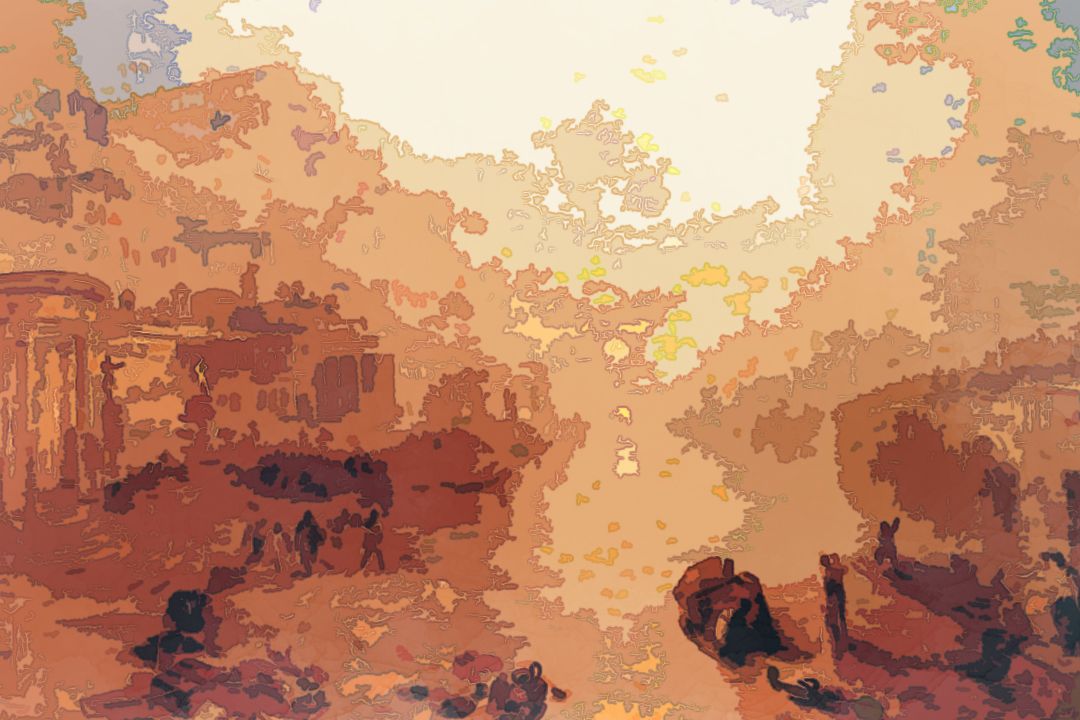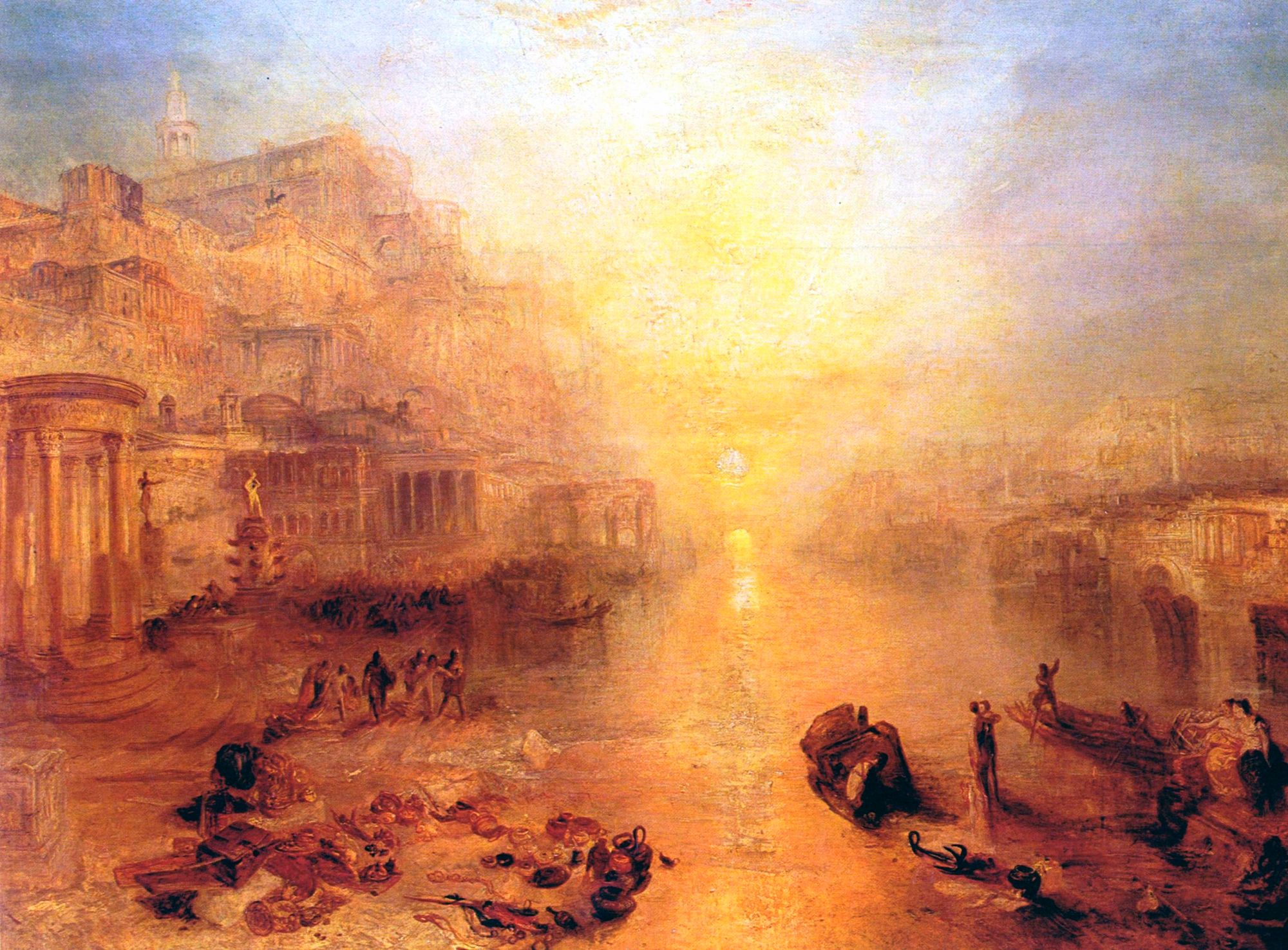I Have the Scars to Prove It

Turner Ovid Banished from Rome
In the heart of a city that had once pulsated with the vigor of empire, where stone and ambition had risen to meet the skies, a man stood at the precipice of exile. This city was Rome, and the man was none other than Ovid, the poet whose verses had dared to explore the terrains of love and desire, threading the fine line between reverence and rebellion. As he looked upon the fading silhouette of the city that had been both his muse and his jailer, the weight of his fate pressed upon him, a reminder of his involuntary departure from the world he cherished.
The decree of his banishment had come swiftly, a thunderclap in the midst of a seemingly untroubled sky. To Ovid, this exile was not merely a physical removal from Rome's grandeur and its labyrinthine streets; it was an expulsion from the heart of cultural and intellectual life, a severance of the bonds that tied him to his friends, his family, and his readers. The reasons for his exile, cloaked in the vagaries of imperial displeasure, mattered little in the face of the reality that unfolded before him. He was to leave Rome, with no prospect of return.
Love is a kind of warfare.
— Ovid (43 BC - 18 AD)
This reflection, borne of his own verses, now took on a new and bitter resonance. Love, in all its guises, had indeed been a battleground upon which he had laid his heart and his art. Through his poetry, Ovid had navigated the tumultuous seas of affection and passion, charting their depths with words that resonated with the souls of many. Yet, it was this very exploration, this unveiling of the complexities of the human heart, that had led him to this juncture of loss and lamentation.
The journey from Rome, marked by the passage of landscapes that shifted from the familiar to the foreign, was a mirror to Ovid's inner transformation. With each mile that widened the gulf between him and Rome, he delved deeper into the realms of introspection and creation. Exile, he discovered, was not merely a physical state but a crucible for the soul, a forge for the spirit. In the quietude of his isolation, amidst the whispering shadows of forgotten places, Ovid's pen found a new vigor, his verses a new vitality.
It was in this exile, in the embrace of a solitude that had been both imposed and embraced, that Ovid uncovered the profound truth that the essence of love, like the essence of life, was etched in the constant interplay of light and shadow, of joy and sorrow. Love, in its most authentic form, was an odyssey marked by battles both won and lost, a quest that demanded the courage to confront the myriad faces of desire and despair.
And so, as the twilight of his life approached, Ovid came to understand that his banishment from Rome was not the end of his journey but a passage to a new beginning. Through the alchemy of his art, he had transformed the pain of separation into a legacy that would echo through the ages, a testament to the enduring power of love and the indomitable spirit of the human heart. In the end, it was not Rome that defined Ovid, but his unyielding passion for life, for love, and for the beauty that lay in the intricate tapestry of the human experience.

The planksip Writers' Cooperative is proud to sponsor an exciting article rewriting competition where you can win part of over $750,000 in available prize money.
Figures of Speech Collection Personified
Our editorial instructions for your contest submission are simple: incorporate the quotes and imagery from the above article into your submission.
What emerges is entirely up to you!
Winners receive $500 per winning entry multiplied by the article's featured quotes. Our largest prize is $8,000 for rewriting the following article;

At planksip, we believe in changing the way people engage—at least, that's the Idea (ἰδέα). By becoming a member of our thought-provoking community, you'll have the chance to win incredible prizes and access our extensive network of media outlets, which will amplify your voice as a thought leader. Your membership truly matters!


